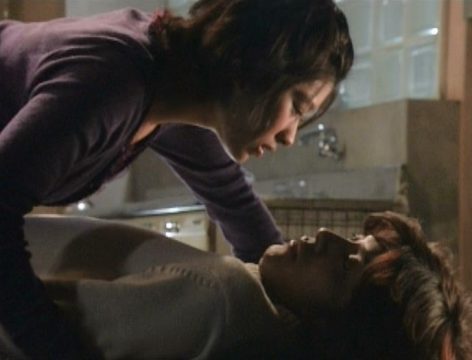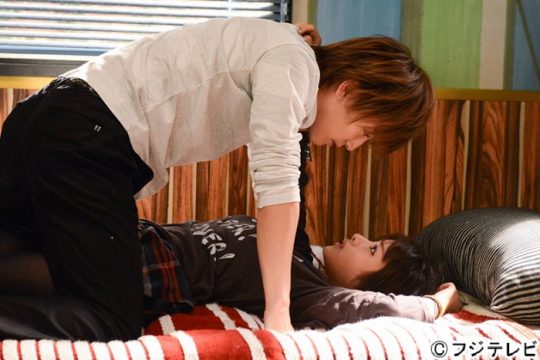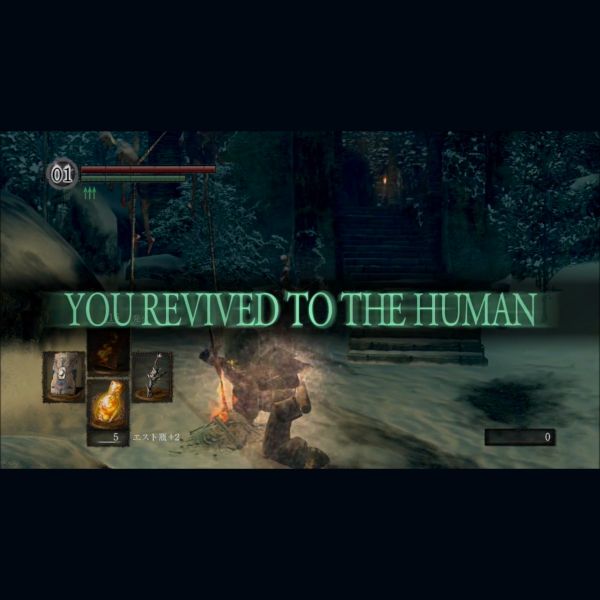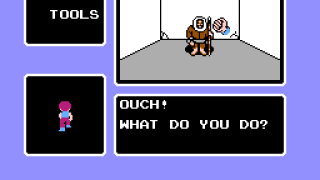Last year, I suddenly decided to play Yakuza 0 for no real reason. It was my first Yakuza game and I can honestly say it’s now one of my all-time favorite games, right up there with Zelda, EarthBound, Final Fantasy, and all the other games I’m known for covering.
I can also say that Yakuza 0 has one of the best localizations I’ve ever seen – I could write a thousand articles on it and still have more to write. For now, here’s one scene from the beginning of the game that caught me off guard and impressed me at the same time.
Basically, there’s a homeless guy in Japan who runs an illegal business – people pay to fight him, and he pays a lot more back if they can knock him off his feet. An American foreigner tries to explain this to the main character, but gets the wording all wrong:
He’s a… whatchacallit. A fisting artist!
To this, the main character responds with:
Whoa… That’s not really my scene.
Then the homeless guy corrects the American:
That ain’t it! It’s PUNCHOUT artist.
The joke is that the American got the wording wrong because he’s not a native Japanese speaker. So instead of a talking about fighting, he accidentally started talking about a sexual activity. The language mistake is somewhat understandable, because fists are used in fighting.
From what I’ve seen, this line gets a good reaction from English-speaking players, so I wondered what it was originally like in Japanese. Here’s a video of the Japanese scene:
In this version, the American says:
He runs, you know, an “oshitaoshite mite” business.
The American was supposed to say taoshite miro, which roughly means “just try and knock me down, buddy”. Instead, he accidentally says something that sounds similar, but is actually very different: the word oshitaoshi in this context evokes the image of someone pushing their lover onto a bed and getting on top of them. Sort of like this:
In effect, the American says the homeless guy runs a “push me onto the bed and get on top of me, sweetie” business. Naturally, the main character reacts with a bit of surprise.
Although this early bit of dialogue is unimportant to the main story, it does help establish the tone for the humorous side of the game. Until this point, most of the game feels incredibly serious, so it’s cool to see that the sudden tonal shift of the English scene matches the original Japanese scene so well.
Like I said, there’s literally a thousand articles I could write about Yakuza 0’s localization. But if you want to hear about it from the actual localizers themselves, check out Sega’s Twitch channel here and the YouTube playlist here – they stream Yakuza games and share inside info every few weeks.








That’s seriously a fantastic localization choice. Who is this guy? Hope he’s being paid enough.
That’s pretty impressive localizing work. It doesn’t lose the sexual joke misunderstanding at all and keeps the scene humorous with the same level of “WTF?” from Kiryu.
I’m gonna need a source for those oshitaoshi example images. You know, for, uh, research purposes…
I’d be proud of that translation.
I’m curious how the pizza/visa sidequest was handled in the original Japanese. Unless if the same pun happens to exist in both languages I don’t know how they got it to work so well.
The pun does exist in both languages. In fact, it works even better since the words sound more similar in Japanese than they do in English.
Late to the party, but it’s entirely possible that the translator was inspired by the Engrish subtitle of “Symphogear GX”, which makes almost the exact same mistake as Bacchus w.r.t. verbing the same noun: “Believe in justice and hold a determination to fist.”
Could you also look into Majima’s “safe sects” joke? I love that bit and am convinced its another clever localization.